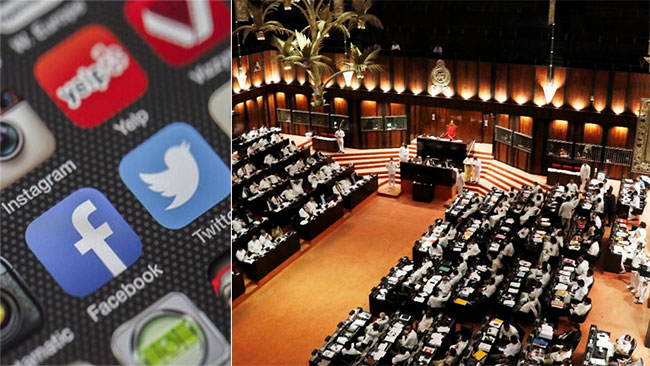January 25, Colombo (LNW): In a parliamentary session held yesterday (January 24), the Online Safety Bill received majority support from Members of Parliament, despite opposition claims that the proposed amendments were inconsistent with the Supreme Court’s determination.
During the announcement of the bill’s passage, Opposition MP M.A. Sumanthiran raised concerns, emphasising that the government’s amendments did not align with the Supreme Court’s determination.
Despite these objections, the government decided to proceed with the proposed bill, citing approval from the Attorney General for the amendments.
The ensuing parliamentary session witnessed a tense atmosphere as Opposition MPs protested the government’s actions.
Despite the protest, the government proceeded to announce the revised amendments and confirmed the passage of the Online Safety Bill in Parliament.
Earlier in the day, the Opposition accused the government of disregarding proper procedural measures in handling the bill. Additionally, they criticised the government for overlooking concerns raised by the Asia Internet Coalition, a consortium of international tech giants, which deemed the law unworkable.
The Online Safety Bill was initially published in the Sri Lankan Government Gazette in September 2023. Subsequently, the Supreme Court determined that certain provisions of the bill were inconsistent with the Constitution.
In response to the Court’s findings announced on November 7, 2023, the government agreed to revise the bill in October.
Key objectives of the bill include the establishment of the Online Safety Commission, provisions to prohibit online communication of specific statements of fact in Sri Lanka, prevention of the use of online accounts and inauthentic online accounts for prohibited purposes, identification and declaration of online locations used for prohibited purposes, and measures to suppress the financing and other support of false statements of fact in communication.
Following its gazetting, at least 45 petitions were filed at the Supreme Court, with concerns raised that the bill violates the fundamental rights of the public.

